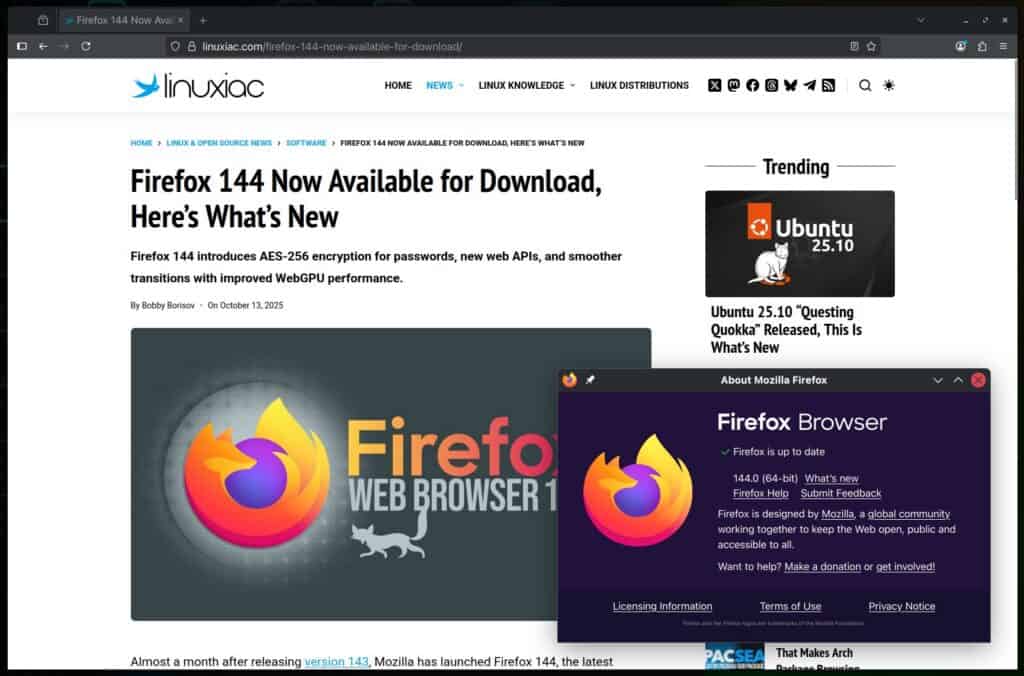Almost a month after releasing version 143, Mozilla has launched Firefox 144, the latest update to its popular open-source web browser, now available for download.
One of the most notable changes is the move from the older 3DES-CBC encryption scheme to AES-256-CBC for locally stored passwords, which makes Firefox’s built-in Password Manager more secure, protecting saved logins on disk.
Mozilla notes that this change only affects local data; passwords synced through Firefox Sync were already using AES-256-GCM, which is even stronger and end-to-end encrypted.
On the usability side, users who enjoy Picture-in-Picture video playback get a handy improvement. You can now close a PiP window without pausing the video—”Shift + Click” on the close button, or press “Shift + Esc” — and playback keeps rolling in the background.

For Android users, Firefox 144 introduces a new translation banner that clearly indicates when a webpage is being translated, improving transparency while browsing in different languages. However, Mozilla also removed the “Allow screenshots in private browsing” setting on Android to simplify privacy options.
On Windows, Firefox now respects virtual desktops better. When opening a link from another app, it’ll either use a browser window already on your current desktop or open a new one if necessary, keeping things more organized for multitaskers.
Developers also get several quality-of-life updates. The Events tooltip in the Inspector now displays badges for custom events, making it easier to distinguish them from built-in ones.
From a web platform standpoint, Firefox 144 lands with plenty of fresh API support. Among the highlights are the View Transitions API Level 1, which lets developers create smoother animated transitions between pages, and the Element.moveBefore API for easier DOM manipulation.
Other notable additions include WebGPU GPUDevice.importExternalTexture on Windows, PerformanceEventTiming.interactionId for INP responsiveness metrics, and the lock() and unlock() methods for the ScreenOrientation interface on tablets and Android devices.
Mozilla also implemented worker transfer for RTCDataChannel and improved WebCodecs performance on Windows with batch encoding, reducing latency for video workloads. Developers will find new getOrInsert and getOrInsertComputed methods for Maps and WeakMaps under the upsert proposal, simplifying key-value handling.
Finally, the resizeMode getUserMedia constraint now allows developers to crop or downscale camera video streams, and Firefox adds dithering when rendering gradients using hardware WebRender for smoother visuals.
Those eager to immediately download the latest version of Firefox can do so directly from Mozilla’s server.
Windows and macOS users can expect an over-the-air update within the following days. Users of rolling-release Linux distributions should look for Firefox 144 as an update in their repositories over the next few days.
